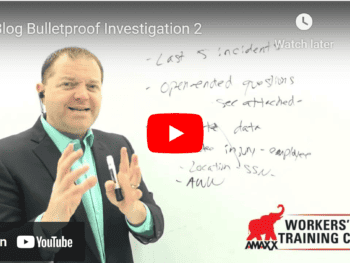Asking the supervisor is not the best thing when assessing a work injury. Instead, stakeholders can coordinate initial care with a triage nurse to provide an effective response and reduce workers’ compensation program costs. Many service providers are outfitted with a call center where experienced nurses are available around the clock. This ensures that an employer is not required to hire an additional employee to cover the medical needs of injured employees.
Effective Use of a Triage Nurse
When an employee is injured, the employee and/or their supervisor reports the accident directly to the nurse triage company where a trained nurse talks with the employee. The nurse can use proven interviewing techniques, listen carefully to the employee’s description of the accident, and direct proper medical care. This allows the immediate focus to be on the employee’s medical needs. Best-in-class providers use sophisticated medical software to assist the responding triage nurse to properly assess the injury.
Additional medical care can be directed from that point. By directing the employee to the most appropriate level of medical care, optimum medical care is provided sooner. This eliminates expensive emergency room visits and prevents the employee from starting medical treatment with a medical provider, only to be transferred to other locations.
Click Link to Access Free PDF Download
“13 Research Studies to Prove Value of Return-to-Work Program & Gain Stakeholder Buy-In”
Key Benefits of Using Triage Nurses
There are many benefits to using nurse triage. Beyond saving money in terms of medical care provided to an employee following an injury, it also helps ensure that employee will receive appropriate medical care that allows them to return to work sooner.
- Effective decision-making by a trained medical professional: Supervisors are often called upon to make medical decisions following a work injury. These individuals are typically not medical professionals, and it takes away from their ability to manage an accident scene. The employee’s supervisor may also discourage the employee from undergoing needed medical care following an injury. By allowing a triage nurse to make medical decisions, it helps ensure the employee is treated in an ethical manner following an injury.
- Effective post-injury reporting with accuracy: A review and proper documentation of a work injury is required and lays the groundwork for an effective claim investigation. Failure to diagnose an injury and not accurately documenting the injury are common barriers that delay investigations and increase costs spent on claims. Nurse triage services will notify the medical provider of the employee’s injury in an accurate manner, and advise the them on when to expect the employee’s arrival. This is immediately followed by the claim being reported to all appropriate entities, including the risk management department, safety and human resources, and workers’ compensation insurance carrier. If arrangements have been made with the nurse triage company, they can gather all the information needed and file the First Report of Injury.
- Effective assistance with early return-to-work programs: Triage nurses can also assist with return-to-work efforts by obtaining a job description, and providing it to a medical provider for review. When the medical provider indicates light duty restrictions instead of returning to work full duty, the triage nurse will contact the employer with the details of the light duty restrictions. A timely determination is made on the employer being able to accommodate the restrictions and place the employee back on the job.
- Effective involvement that demonstrates good will: Employees are the most valuable asset to any employer. By making sure this is known, employers can foster an atmosphere of trust, which leads to a higher level of morale. It also provides a big benefit for the employer – bottom line savings on the cost of their workers compensation insurance premiums. This can also be accomplished by adding nurse triage to help injured employees following a work injury.
- Effective way to demonstrate compassion toward an injured employee: Countless studies have found using nurse triage turns lost time claims into either medical only claims, or “self-care” claims.
FREE DOWNLOAD: “13 Research Studies to Prove Value of Return-to-Work Program & Gain Stakeholder Buy-In”
Conclusions
Quick medical response following a work injury can reduce workers’ compensation program costs. One way to do this is to coordinate efforts with a triage nurse to have an experienced medical professional on-site to evaluate an employee’s medical needs and direct care. Employers who do not have their own on-site medical clinic are turning to nurse triage as a means of controlling and impacting workers compensation cost.

Contact: mstack@reduceyourworkerscomp.com.
Workers’ Comp Roundup Blog: https://blog.reduceyourworkerscomp.com/
©2020 Amaxx LLC. All rights reserved under International Copyright Law.
Do not use this information without independent verification. All state laws vary. You should consult with your insurance broker, attorney, or qualified professional.




























